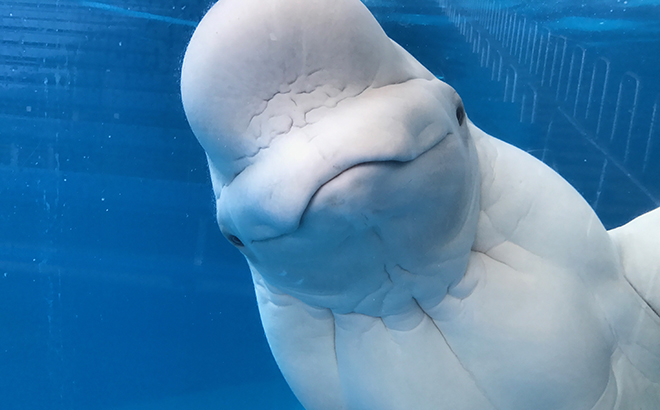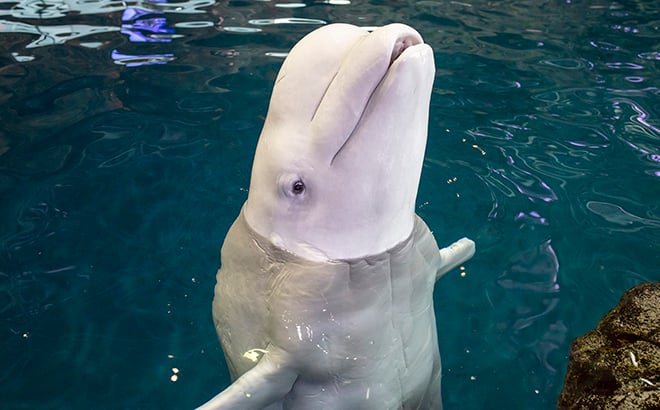SeaWorld Orlando Welcomes Animal Ambassadors to Wild Arctic
On February 9, SeaWorld Orlando welcomed new members to its Wild Arctic beluga whale pod. Oliver, an 11-year old male from SeaWorld San Antonio and Grayson an 11-year old male from Shedd Aquarium in Chicago arrived at the park’s Wild Arctic habitat.

Oliver

Grayson
SeaWorld collaborates with other AZA-accredited and American Humane certified facilities to promote the genetic diversity of beluga whales in professional care, enhance healthy populations, provide socialization between individuals and sustain the species through responsible breeding programs. Less than 30 beluga whales remain in North American accredited facilities; which makes it crucial for facilities to collaboratively sustain the population, provide opportunities for research, and continue connecting millions of people with these incredible animals.
Beluga whales like Oliver and Grayson allow the scientific community to better understand beluga whales and their behavior, and will give guests the opportunity to learn about and ultimately conserve this species of whale and its natural habitat.
Beluga whales are typically found in arctic waters near Alaska, Canada, Norway, and the west coast of Greenland. While researchers estimate there are more than 150,000 beluga whales worldwide, some sub populations of beluga whales, like those in Alaska’s Cook Inlet and Canada’s St. Lawrence Seaway are considered critically endangered. In 2017 SeaWorld’s Rescue team was part of a multi-facility effort to rescue and rehabilitate an orphaned beluga calf. The SeaWorld Busch Gardens Conservation Fund has supported a variety of beluga research projects, including work with endangered populations in the St. Lawrence Estuary.
Beluga whales face many threats in the ocean, including increased noise from shipping and drilling, increased pollution in their environments, contaminated and diminished food supply, and rising ocean temperatures. The conservation of beluga whales is important not only for their future, but the future of arctic ecosystems.
By continuously monitoring the North American population, accredited zoos and aquariums can make decisions on what’s best for each beluga whale in their social grouping, breeding status, and their age. The goal of these institutions is to sustain the population and ignite an interest and connection for millions of people across the continent. Through these efforts beluga whales will hopefully continue to thrive in North America and across the globe.


